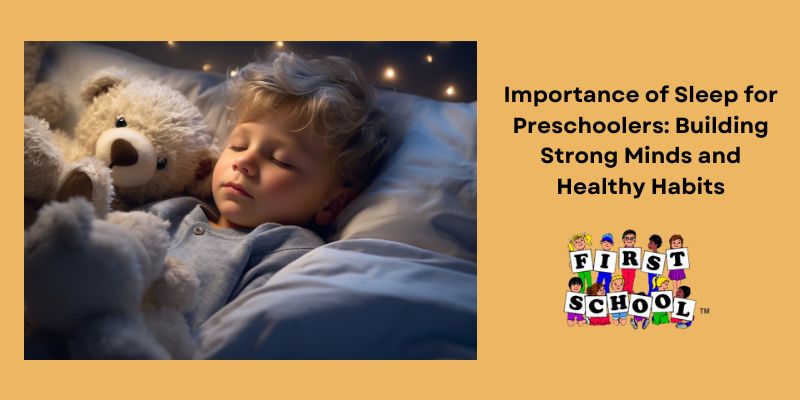



Have you ever watched your preschooler drift off to sleep and wondered what’s happening in their little mind? It turns out, bedtime is when some of the most important “learning magic” happens. During sleep, a child’s brain is busy organizing memories, building connections, and preparing for the next day’s discoveries.
Early childhood, ages 2 to 6 is a time of rapid growth, where every story read, puzzle solved, or new word learned becomes part of a child’s foundation. But without enough rest, that foundation can weaken.
Understanding how sleep affects learning in children helps parents see that sleep isn’t just about rest, it’s a powerful tool for healthy development.
The preschool years are like “brain boot camp.” Children are constantly absorbing new words, ideas, and social skills. Sleep gives their brains the chance to process it all.
The importance of sleep for preschoolers goes far beyond avoiding cranky mornings. While they sleep, their brains strengthen memory, sharpen attention, and support emotional balance. This stage of early childhood sleep and brain development lays the groundwork for success in school and in life. Think of it this way: without enough sleep, a child’s brain is like a bookshelf without enough space, new lessons just won’t “fit” as easily.
Here’s why a good night’s rest is as important as a healthy meal for preschoolers:
Sleep is when the brain files away the day’s lessons. Whether it’s recognizing letters, building a block tower, or recalling a new song, rest helps kids remember and apply what they’ve learned.
A tired child is more likely to have meltdowns or struggle with sharing. With enough rest, preschoolers develop better emotional control, stronger friendships, and a calmer outlook.
Teachers often notice that well-rested children can sit longer for story time, solve puzzles more patiently, and stay engaged in group activities. This link between sleep and attention in young children shows how rest directly impacts learning.
In short, sleep and child development are inseparable, one fuels the other.
So, what happens when sleep is cut short? The effects of lack of sleep on learning are easy to spot.
The truth is, sleep deprivation in early childhood doesn’t just make mornings rough. It impacts readiness for kindergarten, social skills, and even long-term academic success. Because of the close connection between sleep and behavior in children, good rest should be seen as a non-negotiable part of a preschooler’s day.
Parents often ask: “How much sleep do preschoolers need?” Experts recommend 10–13 hours a day, including naps. Younger children may nap more often, while older preschoolers may rely solely on nighttime sleep.
Here’s why it matters: sleep fuels growth, strengthens the immune system, and supports brain development. Simply put, this is why sleep is important for kids’ growth, without it, children miss out on the foundation they need to thrive.
Consistency is key when it comes to sleep. Here are some parent-tested strategies to make bedtime smoother:
These routines make a big difference in improving sleep routines for preschoolers and bring out the full benefits of healthy sleep habits for kids, better moods, stronger learning, and more energy for play.
Of course, no two children are the same. Some may resist bedtime, wake up frequently, or struggle with nightmares. These challenges are common and can feel exhausting for parents.
Here are a few solutions that can help:
If sleep struggles continue, don’t hesitate to seek professional advice. Remember, sleep and academic performance in young children are deeply connected, and establishing good habits now makes learning easier later. With the right strategies and parenting tips for preschool sleep, bedtime can become less of a battle and more of a peaceful routine.
In early childhood, sleep acts as a silent teacher, shaping memory, behavior, and overall learning. When preschoolers get the rest they need, their minds are sharper, moods are steadier, and growth unfolds naturally. Prioritizing healthy sleep habits isn’t just about bedtime, it’s about giving children the best chance to thrive, learn with joy, and build a strong foundation for the future.
Healthy sleep is the secret ingredient to confident, happy, and engaged learners. At First School, we create a supportive environment where rest, play, and learning work together to build strong foundations for early success. Ensure your preschooler’s growth starts on the right note.
Contact us now to explore enrollment options.